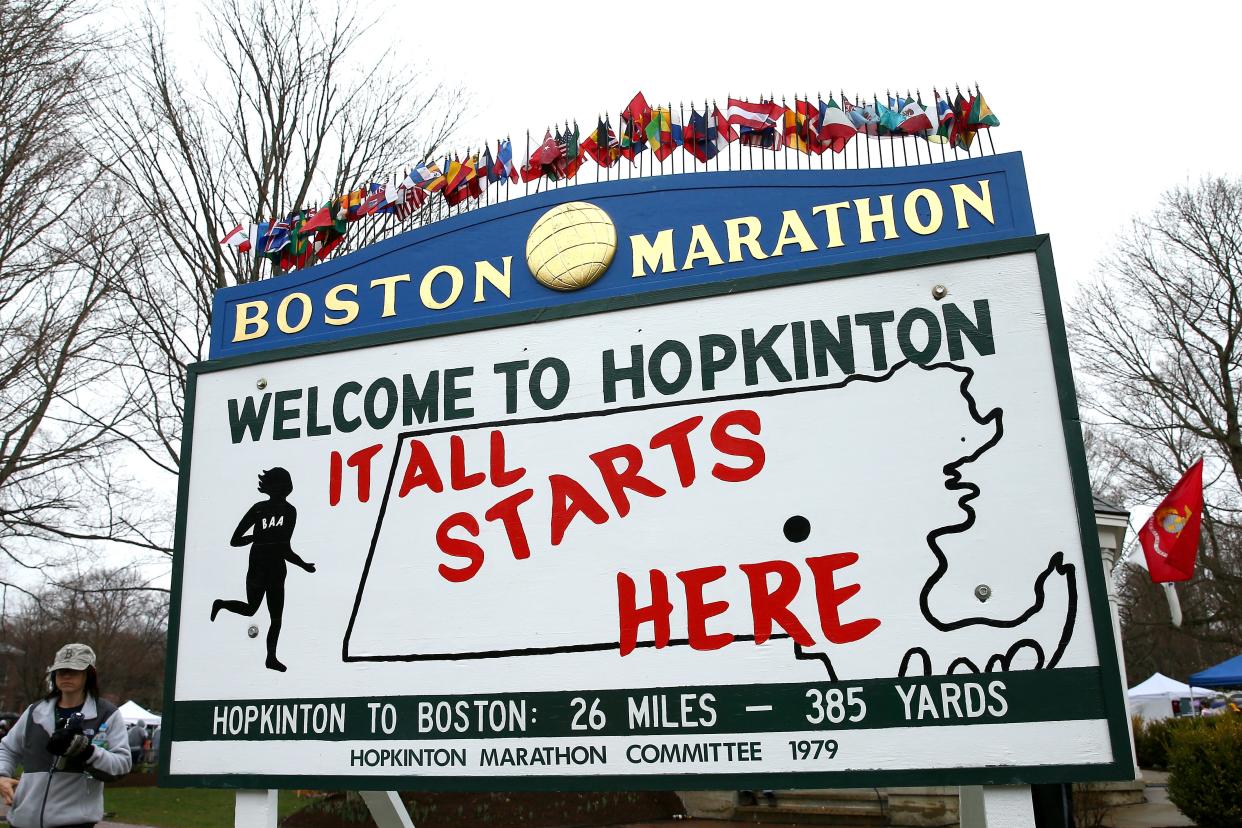Death of Mikayla Miller, a Black LGBTQ teen, deemed suicide despite lynching allegations

A view of a sign stating
((Photo by Maddie Meyer/Getty Images))" />
The Massachusetts medical examiner concluded that the death of Mikayla Miller, a Black LGBTQ teen, was a suicide, The Boston Globe reports.
Her family has alleged she may have been lynched by a group of white teens and that local authorities have thus far conducted an inadequate investigation.
Ms Miller was found on 18 April hanging from a tree near her house in Hopkinton, Massachusetts.
“My concern is, did they really thoroughly look at the crime scene?” Calvina Strothers, Ms Miller’s mother, has previously said. “Or did they just dismiss it because she’s a Black girl on a tree in Hopkinton?”
The investigation into her death remains ongoing.
“This ruling addresses the manner and means of Mikayla’s death,” Middlesex County district attorney Marian Ryan said on Tuesday in a statement to CBS Boston. “However, our investigation into the events surrounding Mikayla’s death remains active and ongoing. We will continue to explore every investigative angle necessary as we do that work and intend to issue a complete and thorough report at the conclusion of the investigation.”
The day before her death, according to local officials and Ms Miller’s family, the girl was the victim of a physical assault from a group of teens, which left her with a bloody lip.
Local officials have said the group included at least two people, a boy and a girl, while a spokesperson for the Miller family has said at least five people were there, including a girl who had recently been in a relationship with Ms Miller.
Later that night, Ms Strothers called Hopkinton police to report that her daughter had been “jumped.”
Police and local prosecutors initially told the family their daughter had died by suicide, but didn’t share information with the public for nearly two weeks. In that time, numerous people in the community and on social media speculated about what led up to Ms Miller’s death, including a racially-motivated beating or even a full-blown lynching.
District attorney Ryan has defended her office’s handling of the case so far. “Let me make one thing clear: Nothing can bring back Mikayla or console her grieving family. But what we can do — indeed what we owe her — is an accurate and fulsome accounting of what led to her death,” she said last week. “You have my word as your district attorney and as a mother, that I will deliver that answer. But the public must give us time to find the answers.”
She added that any allegation Ms Miller’s identity as an LGBTQ Black girl had inspired an insincere investigation was “painfully false.”
Criticisms of the investigation have been numerous, including that investigators didn’t initially treat the incident as suspicious, that they kept poor records, and that they relied on inaccurate cellphone data.
The DA’s office said in a preliminary summary of its findings, based on cellphone, surveillance, and witness evidence, that it had accounted for the locations of all five teenagers who interacted with Ms Miller the night before her death. It also said that based on “forensic information gathered from the health app on Mikayla’s cell phone,” it deduced she had walked 1,316 steps between 9pm and 10pm the night before her body was discovered, roughly the distance from her home to the location in the woods where a jogger discovered her the following morning.
Ms Strothers, meanwhile, says her daughter didn’t have tracking data activated and that she confirmed this with Apple.
Another wrinkle in the case concerns physical and digital evidence. A video system at her apartment building which might have captured evidence concerning the beating rebooted on 19 April before investigators obtained its footage, and Violence in Boston Inc, an activist group, also contends a public police log didn’t register the reported jumping or the body being discovered.
“It’s highly unusual if there’s no notation on it. It’s downright suspicious,” Phillip Atiba Goff, a Yale professor who previously founded the Center for Policing Equity, told Vox. “It is incredibly distressing to imagine that our lives, and therefore our deaths, don’t rate to record — even when it’s clear indications that there is a homicide [or a suicide].”
Read More
UK weather: The latest Met Office forecast
Tiny bats put kibosh on power line tree-cutting for 2 months

 Yahoo Movies
Yahoo Movies 
